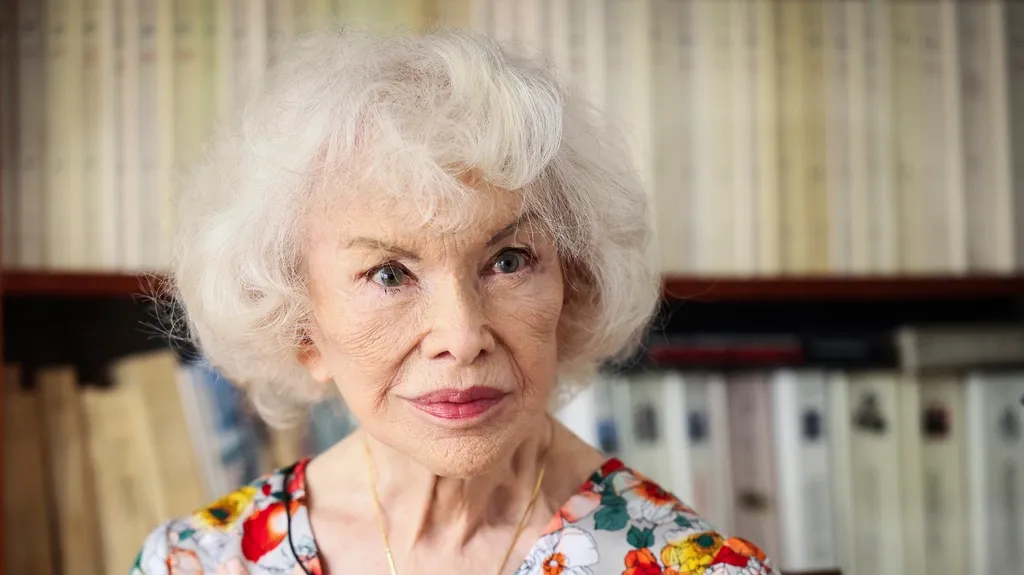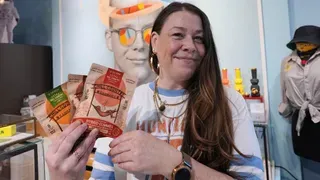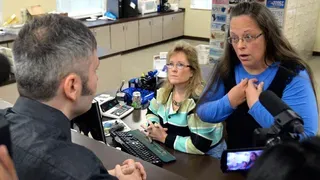October 28, 2011
Out and Equal Summit Attendees Highlight Immigration Inequality
Eric Miller READ TIME: 3 MIN.
Those who back equal treatment for bi-national same-sex couples in the United States see the issue as critical to maintaining corporate America's competitive edge. Many companies agree, but the list of those who attended this week's Out and Equal Workplace Summit in Dallas is considerably longer than those that have signed onto a measure designed to achieve that end.
American Airlines, Marriott International, Bristol-Meyers Squibb, Intel, Nike and Pfizer are included on a list of 18 companies that form the Business Coalition for the Uniting American Families Act.
Several of the summit's workshops dealt with immigration-related issues-including one that Immigration Equality, Lambda Legal and the League of United Latin American Citizens presented. John Trevino, a LULAC representative who is an attorney with American Airlines, knows the issue first-hand as part of a bi-national same-sex couple.
According to the U.S. Census, more than 36,000 gay and lesbian Americans are in bi-national couples. Their median age is 38, and 46 percent of these couples are raising children.
"If I had to choose between my work and my relationship, I would choose my relationship and if we had to relocate, that's what I would endeavor to do," said Trevino, whose partner is from Russia. "We shouldn't be put in a position to choose between our families and our work."
Trevino framed the issue around family-based immigration-most immigrants who come to the United States do so to unify their families, but this is not possible for same-sex couples. Current immigrant law only speaks of spouses, but UAFA would amend it to allow permanent partners to sponsor their loved ones.
Chris Fleming manages corporate sponsorships for Immigration Equality. He said companies understand the economic consequences associated with a lack of immigration equality, and they often take the lead on issues that impact their LGBT employees. Fleming sited a situation at Pfizer where an executive with a Brazilian husband could not bring him into the United States. The pharmaceutical company ended up spending more than $1 million to relocate that executive and his partner to the United Kingdom.
Fleming said that UAFA was not likely to pass on its own, but it is currently included in the Reuniting Families Act and the comprehensive immigration reform bill. It is quite possible that lawmakers on Capitol Hill could negotiate UAFA out of either of these proposals if they were voted on today because they lack sufficient co-sponsors.
Asylum for LGBT Refugees
As frustrating as problems with immigration are to bi-national couples, they pale in comparison to those many refugees experience around the world. They often face violence, imprisonment and even death in their home countries and even in those to which they escape.
The system of family-based immigration that excludes same-sex partners makes it difficult for those without family ties in the United States to gain entry.
Neil Grungras is the founding executive director of the San Francisco-based Organization for Refuge, Asylum and Migration. The group has represented 150 refugees and relocates seven of them to the United States since it was founded in 2008.
While the United States accepts more refugees than any other country, Grungras said those who gain asylum are most often members of demographic groups with advocates in the country. Grungras pointed out there was no system to resettle LGBT refugees with "no box to check and no indication it was safe to apply" until recently.
For the situation to change, these refugees need an advocate. And Grungras said this means that the LGBT community needs to accept LGBT refugees as their own brothers and sisters.
Homosexuality remains criminalized in 75 countries-and punishment varies. Iran, Saudi Arabia, Yemen, the United Arab Emirates, Sudan, Nigeria and Mauritania impose the death penalty upon anyone found guilty of consensual same-sex conduct. Grungras specifically noted anti-LGBT violence that has occurred in Iraq since 2003 as he discussed the issue.
Danny Dyson, a refugee that ORAM helped to relocate from his native Uganda to San Francisco, was present in the room. Dyson was working as a gospel singer in the East African country until several Evangelical pastors arrived and began to purge the country of homosexuality. Dyson said he was kidnapped at gunpoint and beaten after he came out as an LGBT activist.
He said anti-LGBT harassment continued in the refugee camp in Kenya to which he escaped. Jewish Family and Children's Services of the East Bay and ORAM helped relocate Dyson to the United States nearly a year after he fled Uganda. He was in Dallas as part of his internship with Out and Equal.
"Now I sleep good and I am not afraid for my life," said Dyson, responding to a question about what he has achieved since arriving in this country. "I was lucky there was someone advocating for me."
Eric Miller is a freelance writer and public relations professional based in Dallas. Eric is also publisher of www.newcolonist.com and co-creator of www.calendarofantiques.com. Eric has a Graduate Certificate in Public Relations from NYU, a Masters in Urban Studies from the University of Akron and is author of a chapter on Ayn Rand's life in New York in the book Literary Trips: Following in the Footsteps of Fame. He lives with his partner and four cats. Follow Eric on twitter @ericwmiller.






